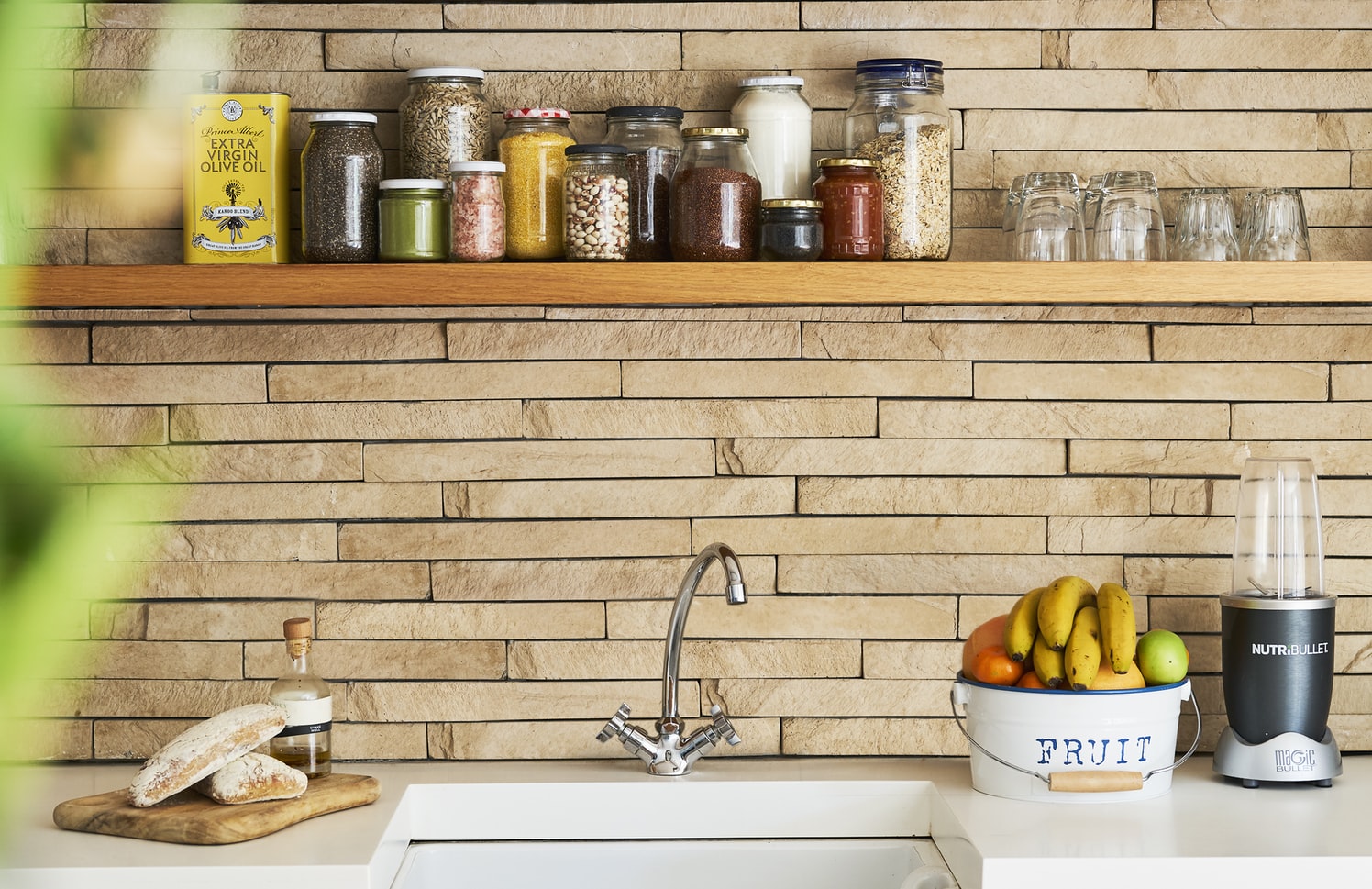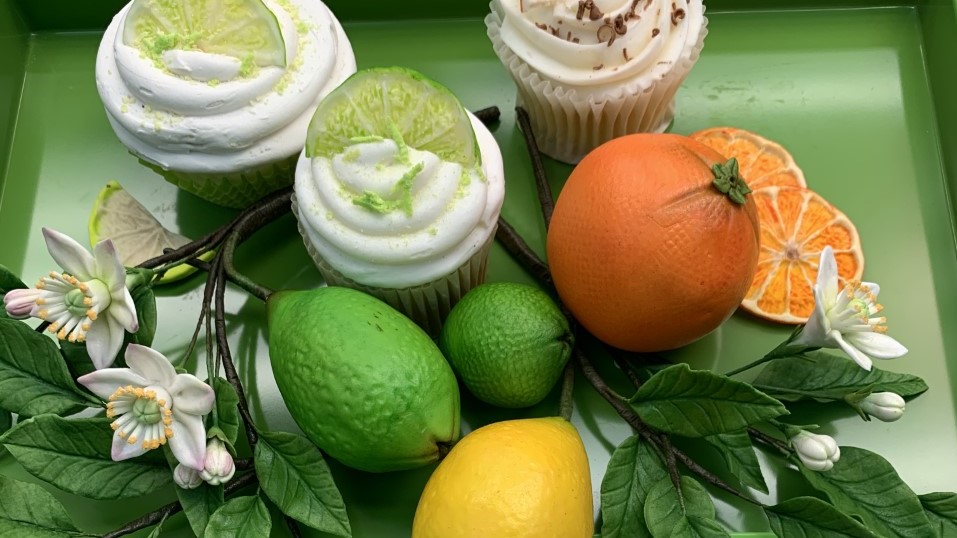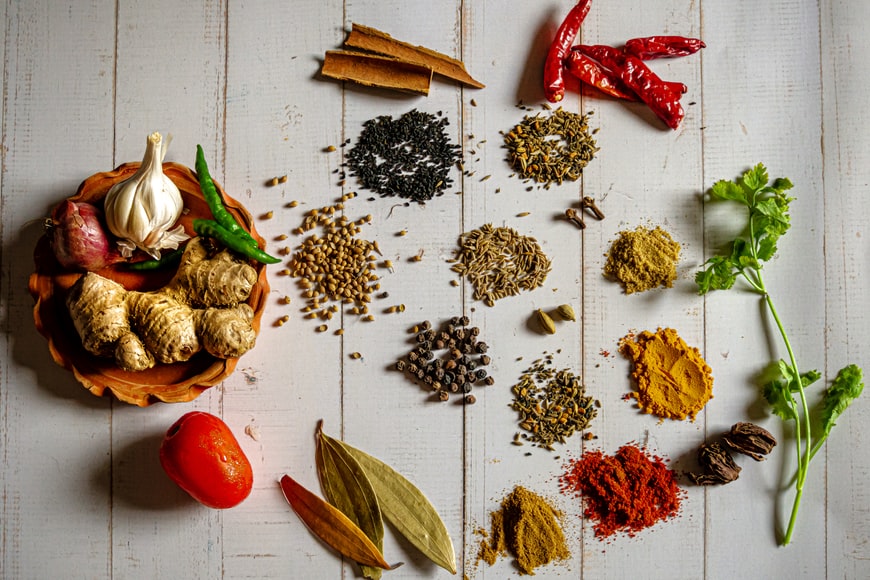Having your fresh herb garden to cook right in your kitchen or sunroom can save you a few clams at the grocery store, and you’ll know that your seasonings are 100 percent organic since you grew them yourself. We gathered cooking lovers, herb growers, passionate spices, and people like you on this Expert Roundup. I want to make delicious dishes at home with the most natural and delicious ingredients. As you know, they also have multiple benefits that we would also have our expert’s opinion into it. Special thanks to all the experts who have helped us make this Q&A that we are sure will help you with excellent tips and ideas for your everyday life in the kitchen and your regular activities at home.
- How to start growing my herbs at home?
Most herbs can quickly be grown in a garden, pot, patio, or even on a sunny windowsill. When you plant herbs, consider your growing zone and the hardiness of the plant. If the plant doesn’t winter over in your climate, you can often set a potted herb in a sunny location in your home for the winter months. Depending on the herb, I would recommend either buying a small plant or growing it from seed. Following is a list of how I would suggest producing some of our most popular herbs:
Buy a Plant: rosemary, most mints (be sure to grow these in a pot as they tend to spread), lavender, thyme.
Grow from Seed: sage, basil, chamomile, chives, cilantro, dill, parsley, calendula, fennel
Elaine Sheff | Co-Director at Green Path Herb School
- How to Grow Herbs Indoors?
When growing herbs indoors you need to evaluate your windowsills and find the most southern facing window that isn’t blocked by evergreen or building. Most herbs love direct sunlight, which hits us from the south, if your windows are more northerly facing you may need supplemental LED lighting. Find seeds or support your local nursery for starter plants. Acquire pots with proper drainage holes to prevent root rot and good natural potting soil. Most herbs prefer to dry out in between watering. For specific herbs find your favorite expert
Patrick McDuffee | Well-Sweep Herb Farm
- Which are the best tips to care for herbs at home?
Choosing Herb Varieties – For indoor herb gardens, select Perennial herbs such as Parsley, Rosemary, Thyme, and Sage. For outdoor herb gardens, select Annual herbs such as Cilantro and Dill.
Choosing Containers for Indoor Herb Gardens – The best containers for herbs are wood or terra cotta. These types are breathable and allow proper drainage. If you use a metal or ceramic pot, be sure to make sure there are drainage holes.
Watering Your Herb Garden – Most herbs require little watering. Be sure to check your seed packet for watering instructions as it can differ between varieties of herbs. Overwatering is a common problem in indoor herbs.
Dan Goodspeed | Jung Seed Company
- What are the advantages for our health of growing our herbs at home?
For me, there are two significant health advantages to growing my herbs at home. One of the advantages is having the choice to avoid chemical pesticides for our home-grown herbs. A spritz of chrysanthemum flower tea is all it takes to keep my indoor herb garden thriving, pest-free.
The other advantage is that herb gardening can be a great way to counter the adverse effects stress has on us, physically and mentally. I love the aroma of my fresh herbs as they grow, and caring for them helps me relax and feel centered. The calm feeling of well-being I get from my home herb garden is worth at least as much to me as having fresh herbs to cook with.
Gin Butters | Eat Healthy Eat Happy
- What are the three advantages of using herbs and spices when cooking?
Herbs and spices make cooking a complete sensory experience. They can create aromatics and an atmosphere that brings you joy. They are tools you can use to stamp your style on your food – tailor and amend the amounts to create the flavor that YOU love the most. Use them to recreate and reinvent the same dish over and over but customize it to your mood by listening to your body. Which flavors resonate with you at that moment? Taste test, listen, adjust, repeat. And always be open to testing something new.
Candice Walker | Proportional Plate
- How does growing your own herbs at home can help you make healthier dishes?
Not only are fresh herbs packed with flavor, but they are also packed with micronutrients and minerals. Growing herbs indoors in a sunny window or with a lighted herb planter gives you easy access to pick off a couple of leaves or sprigs to add to your food and drinks. Herbs such as basil, parsley, rosemary, and peppermint are easy to grow and fun to use in recipes.
Jessa Plant | Creator of LowCarbDelish
- When to use fresh herbs vs. dried herbs?
Dried herbs work well in most recipes like casseroles, baked dishes, and so= up. When you want a pop of fresh flavor in salads and as a garnish, use fresh herbs. Basil and cilantro, in particular, are better fresh than dried.
Taryn Scarfone | Founder at Joy Filled Eats
- How to properly store herbs to make them last longer?
The best way to make herbs last longer is to store them in the fridge. But before you store any herbs, clip them off the stems, wash, and dry them well. Hard herbs like rosemary and thyme, can be frozen in resealable freezer bags to last longer. Tender herbs like cilantro and parsley can be blend with olive oil or water and frozen in ice cube trays.
Jennifer Anderson | The Melrose Family
- Which are your favorite blends of herbs and which ingredients do those have?
My favorite herb blends include the classics like
Italian (basil, oregano, rosemary, sage, marjoram), and
Garlic & Herbs (dried garlic, basil, oregano, parsley, lemon, onion)
But also the far more underrated:
Herbs de Provence (thyme, marjoram, rosemary, savory, lavender)
Fine herbs (chervil, chives, parsley, tarragon, thyme)
Each has its place depending on what you are making, but the flavor profiles between them have you covered for quickly putting together a soup, vegetable, marinade, or entrée.
Mackenzie | Food Above Gold
- How Does Using Herbs and Spices Help You Creating Easier Meals?
Using shortcuts like spice packets and dried herbs can add tons of flavor to your meal AND when you use packets and blends, it doesn’t have to break the bank! Gravy packets, spice blends like taco seasoning, Montreal steak blend, Italian seasoning or French onion soup mix can add flavor and save time in the kitchen. There’s no need to buy all the separate spices or herbs, instead, just pick up the blends!
Debra Clark – Bowl Me Over
- How do herbs, spices, and seasonings serve to enhance the flavor of foods?
Herbs and spices come in a wide array of different flavors and heat profiles. They have the ability to completely transform a dish and often result in no (or less) salt needed in a recipe to really make it taste delicious. In addition, many herbs add such a beautiful pop of color that enhances the whole culinary experience.
Brita Britnell | Founder and CEO at Food with Feeling

- What can you use vanilla flavoring for?
Vanilla flavoring, much like pure vanilla extract, is used to enhance the flavor of a recipe. Many vanilla flavorings do not use real vanilla beans. Singing Dog Vanilla’s alcohol-free pure vanilla flavor is all-natural, gluten-free, and made with real vanilla beans. It is perfect for those who wish to eliminate alcohol from their diet while still enjoying the taste of pure vanilla.
Andrew Gillen | Marketing at Singing Dog Vanilla
- What are some benefits you can tell us about having a plant-based diet?
There are so many benefits to a plant-based diet! When your diet is focused on whole, plants foods, you automatically consume so much fiber, both soluble and insoluble, which helps with digestion, gut flora, blood sugar control, and more. Similarly, plants are loaded with antioxidants! A plant-based diet focused on minimally processed foods provides disease-fighting phytonutrients that can help decrease inflammation!
Ashley Madden | Rise, Shine, Cook
- Which are the main ingredients you would recommend having at home for making the most common recipes?
There are two different types of households; those who prefer to cook more and those who prefer to bake more. For cooks, the most common ingredients used in their kitchens are Spices (salt and pepper), Oils (olive oil and vegetable oil), Grains (pasta & rice), vegetables (onion & garlic), and protein (chicken & beef). For the bakers, the most common ingredients are flour, butter, eggs, sugar, vanilla extract, and leaveners (baking soda & baking powder).
Dina Polyashov | Simply Home-Cooked
- Which herbs and spices would you recommend for grilling?
My favorite spice for grilling is smoked paprika. It gives a warm smoky flavor that makes meat taste like it spent hours on a smoker. It is the best way to get a lot of flavors in a little time. Just mix with salt, onion powder, and garlic powder for a great dry rub.
Paul & Taryn Scarfone | A Grill for All Seasons
- How to prepare an herb garlic butter, and how long does it can last?
Place room temperature butter in a bowl and add four minced garlic cloves and one tablespoon of fresh herbs. Mix until well combined and place butter mixture on a piece of parchment paper and roll up like a log. You can store this in the refrigerator for one week or freeze it for up to 6 months.
Wendie Williams | Butter Your Biscuit
- What’s the best way to store Vanilla Extract and Vanilla Beans?
Vanilla extract is best stored at a cool to moderate room temperature (60-80°F) and in a dark environment. Kitchen cupboards are usually a great place to keep your vanilla extract, as long as you do not store it over a stove or near a heat source. Also, do not store vanilla extract in the refrigerator or freezer as low temperatures will cause the vanilla extract to become cloudy. Vanilla beans are best when stored in a cool, dry, and dark place. Keep vanilla beans away from heat and do not put them into the refrigerator or freezer. After you have opened your beans, store them in a closed, airtight container such as a zip lock bag to keep them moist. Also store the opened vanilla beans in a cool, dry, and dark space.
Jenna Baker | Rodelle
- How can you use grown at home herbs and citrus for desserts?
As a pastry chef, I love to grow herbs and citrus at my Atlanta home. I not only use herbs for cooking but baking as well!
At my school in Norcross where I teach pastry and sugar arts, we prepare lunch each day for the students attending class. Most days this lunch includes freshly baked bread made with herbs grown in my home garden. Our signature Lemon Rosemary bread is made with fresh chopped rosemary and Meyer lemon zest. Other popular pieces of bread baked and served at our school are Olive Dill and Garlic Herb, both of which utilize fresh herbs.
Many of our main dishes are created using a homemade Lemon Jam that is made from Meyer lemons, also grown in my home garden. Meyer lemons grow very well in containers, which is a good thing since I live in a townhome and space is limited. I grow all of my herbs and citrus in containers. Meyer lemons are not as acidic as other varieties and are very fragrant and feature a thin skin with very little white pith.
The lemon jam I make and store in large jars in the refrigerator and use it throughout the year. This is very much like canning or preserving and the lemon jam can be added to cookie dough, cake and cupcake batter, waffle and pancake batter, and more. It can also be brushed on fish like salmon, mixed into a Greek salad dressing, or combined with the lemon jam with garlic and fresh chopped rosemary for a marinade for grilled Greek chicken. I use the lemon jam in stir fry, marinades, and sauces.
At my school, each afternoon warm out of oven cookies are served to the students using fresh or dehydrated lavender in shortbread, and lemon cookies are the student’s all-time favorites!
Lavender is one of my personal favorite flavor profiles and I have many varieties growing in my garden. I love Provence for its fragrance, but English varieties like Hidcote and Munstead are best for baking as they are the most aromatic. I use these to infuse vodka for cocktails and also infuse granulated sugar to use to rim the cocktail glasses. The infused sugar is also great to use on crème brûlée, and fresh Georgia peaches are delicious when grilled with lavender sugar. I also create lavender simple syrup that I drizzle over the grilled peaches or it can be added to lemonade or iced tea for a special twist.
I have a food dehydrator and I believe this is a kitchen essential as it enables me to pick and dehydrate certain herbs, like lavender, that are more seasonal and to be able to use any time of the year.
Growing herbs can be fun! Herbs in the garden give off a wonderful aroma and help keep the bees happy too. There is nothing like going outside and gathering some fresh basil to add to a salad or pasta dish! Just like a tomato straight off the vine, the flavor is something totally different than the herbs from the grocery store.
Go ahead. Give it a try. A small container herb garden outside your kitchen door will bring a lot of happiness, not to mention taste, to your home cooking!
Chef Nicholas Lodge | Nicholas Lodge Blog

As you can see, our experts have all very different opinions that all together have given us excellent tips and advice about using herbs, condiments, spices, and food enhancers to make delicious meals. As well, other common uses we can give to those at home.
This article is still developing.




